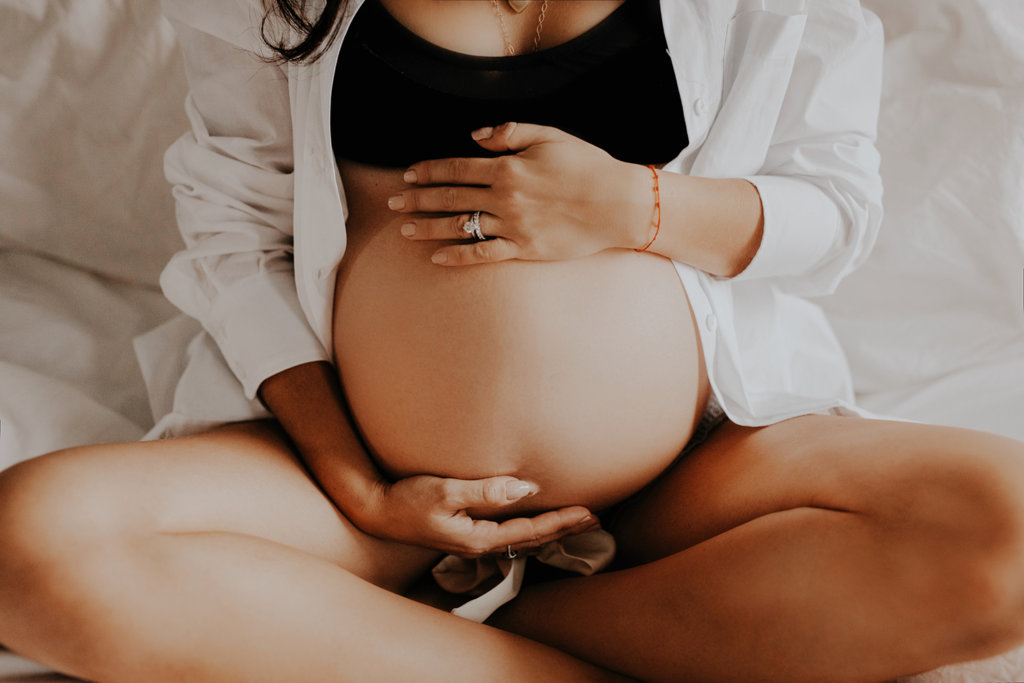Pregnancy & COVID-19
Frequently Asked Questions (FAQs)
When I was pregnant with my son a few short weeks ago, I had a ton of questions circulating through my mind in addition to the standard concerns that exist while pregnant. As I was preparing for one of the most intense and memorable days of my life, I was also worrying about delivering in a hospital and exposing my baby to a global pandemic. I wondered if there would be a shortage of supplies and staff and how that would affect the well-being of my baby.
What does it mean to be pregnant during a global pandemic? Was I more susceptible to getting coronavirus because I was pregnant? If I did get it, how would the virus affect me and my baby? How could I protect myself while pregnant and postpartum? How could I protect my family? What if I had COVID-19 postpartum and passed it to my baby? How would I take care of my baby and breastfeed if I had coronavirus? Will there even be enough diapers on shelves in stores?
The questions were endless. The only thing that brought me any sort of mental relief was researching and looking at the data. I was able to find answers to most of these questions from data and reports released by organizations such as the World Health Organization (WHO), Center for Disease Control (CDC), American College of Obstetricians and Gynecologists (ACOG), and the American Academy of Pediatrics (AAP) as well as other emerging clinical studies.
I put together some answers to questions I was asking myself and my doctor based on the data available today. This is a new virus so research is limited. We are all learning from new evidence emerging on a daily basis. It’s always best to speak to your OB-GYN about any concerns you have since he/she knows your situation best. Although, if you’re doing your own Google searches and trying to read as much as possible about COVID-19 before giving birth, here is some information I found helpful. If you have other questions, comment below and I’ll include them in the next FAQ. Stay safe out there (and stay home).
Are pregnant women more susceptible to getting coronavirus? If they do get infected, will they have more severe disease compared to the general population?
According to the CDC, it is not currently known if pregnant women have a greater chance of getting COVID-19 than the general population.
In general, pregnant women experience changes to their immune system that may increase their risk of getting a more severe presentation of some illnesses, such as influenza. Per ACOG, pregnant women do not have more severe disease for COVID-19 than the general population. Researchers are still trying to understand how coronavirus affects pregnant women. Healthcare professions are encouraging pregnant patients to take the same precautions as the general population.
According to a report of the WHO-China Joint Mission on Coronavirus Disease 2019 (COVID-19), pregnant women do not seem to be at a higher risk of severe disease based on an investigation of 147 pregnant women. In this study, there were 64 confirmed cases of coronavirus, 82 suspected cases and 1 patient who was asymptomatic. Eight percent of patients had severe disease and 1% were critical. Although pregnant women tend to have a higher risk of getting some respiratory infections with more severe symptoms, based on data seen thus far, that does not seem to be the case with coronavirus.
Can pregnant women pass coronavirus to their unborn child?
In a retrospective review published in early February in The Lancet, researchers observed nine pregnant women in China diagnosed with COVID-19 who gave birth via C-section. There was no evidence that the virus could pass from mom to child in the womb or via C-section. This is, however, a small number of patients.
Per the CDC, it is not yet known if a pregnant woman with COVID-19 can pass the virus to her baby during pregnancy or delivery. At this point, no infants born to mothers with COVID-19 have tested positive for COVID-19.
A new report published on March 26th reviews a case of possible vertical transmission of SARS-CoV-2 from an infected mother to her newborn via C-section. An infant born to a COVID-19 positive mother had SARS-COV-2 IgM in serum at birth. The authors described this case as most likely to be a neonatal immune response to an in utero infection.
Can COVID-19 cause complications in pregnancy? How can COVID-19 affect a fetus?
According to the CDC, It is not yet known if COVID-19 causes complications during pregnancy or after birth. Per ACOG, some pregnant women with COVID-19 have had preterm births, however it is not yet clear whether the preterm births were related to COVID-19.
How can pregnant women avoid getting coronavirus?
Per ACOG, pregnant women can take the same precautions as the general population to protect themselves, such as washing hands often with soap and water for at least 20 seconds, using a hand sanitizer with at least 60% alcohol, avoiding touching their face, staying home, avoiding people who are sick, and staying at least 6 feet away from other people if needing to leave their home.
Can COVID-19 pass from a mother to her baby via breastfeeding?
According to ACOG, coronavirus has not been found in breast milk. However, there is not enough data yet to determine if women with COVID-19 can pass the virus through breast milk. Speak to your physician regarding breastfeeding and whether to continue if you have COVID-19.
The data is evolving and new information is coming out often. To stay up to date, I included a list of resources below with direct links to their coronavirus content:
Photo: Joe Mac

